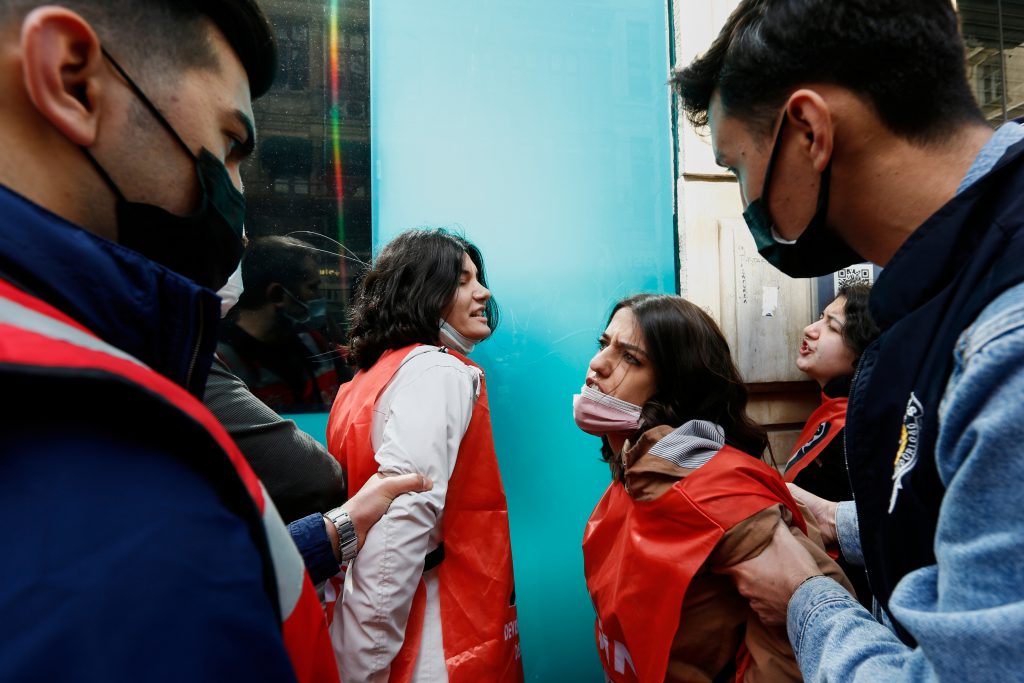On 24 and 25 June, the European Council will discuss the potential expansion of the EU Customs Union with Turkey, marking a crucial opportunity for the EU to use any talks with Turkey as leverage for the respect of the rule of law and human rights in the country. EuroMed Rights further calls on applying a principle of human rights conditionality in this process.
The statement of the European Council meeting in March showed that geopolitics and migration have pushed human rights off the EU’s priority list when it comes to Turkey.
Despite the AKP government using the judiciary to silence criticism and dissent, enacting laws to stifle free speech and target civil society, and the issuance of a Presidential decree to arbitrarily withdraw from the Istanbul Convention in March 2021 (violating the Turkish Constitution itself),[1] the EU and its member states seem to privilege geopolitical interests, such as the externalisation of migration management and the fight against terrorism, over the promotion of due respect of civil liberties and international human rights treaties when tabling talks with Turkey.
Freedom of association and expression, LGBTIQ+ and women’s rights, child labour, asylum and migration, non-respect of minority, ethnic, and religious group rights – the list of human rights concerns in Turkey is alarming. The EU should urgently review its approach if it does not want to lose leverage and credibility among stakeholders in Turkey who rally for a better and more democratic future. The full potential of EU-Turkey relations, including the talks leading to a potential “modernisation” of the Customs Union, can and must be used to promote human rights.
The EU is by far Turkey’s top trade partner and its main source of investments. A third of Turkey’s imports come from the EU, and 41% of the country’s exports go to the EU. It is therefore crucial that the EU recalls its human rights obligations in all its actions and uses its economic leverage residing in bilateral preferential trade frameworks.
Visible progress on human rights should be a prerequisite for any move to open discussions on a modernised Customs Union. In the rush to stimulate economic recovery, the EU and its member states should state that no progress in the dialogue with Turkey can take place without concrete measures to ensure an independent judiciary, the democratic, accountable institutions that are essential for good relations with Europe, and the respect of human rights. Additionally, in the eventuality of a revision of the current EU-Turkey Customs Union agreement, the EU should discuss the inclusion of a clause on human rights.[2]
——–
[1] The Istanbul Convention was ratified by the Turkish Grand National Assembly (TGNA) in November 2011, in line with the provision set for by article 90 of the Constitution. Violating national constitution, President Erdogan has repealed the Istanbul Convention, an international human rights treaty ratified by the TGNA , overriding the acts of the legislative and exploiting the Presidential executive powers to repeal domestic and international law.
[2] For other examples of EU promoting human rights in bilateral policies, see Barcelona-Declaration-25_final-report.pdf (euromedrights.org)

